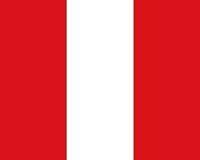 |
Baghdad (AFP) May 17, 2010 Iraq signed a deal with Chinese energy giant CNOOC and Turkey's TPAO on Monday to develop a major southern oilfield complex, its 11th deal with foreign energy firms as Baghdad aims to boost crude output. Among the three fields in the Maysan complex, along Iraq's border with Iran, is one partially claimed by Tehran, whose forces took over an oil well in the Fakka field in December for several days but withdrew after bilateral talks. "Today is a very important day in the history of Iraqi oil production, with the development of very important fields in Maysan province," Oil Minister Hussein al-Shahristani said at the contract signing in Baghdad. "After several contacts with CNOOC and TPAO, a price for exploitation has been agreed." The fields were first put up for auction in June last year but no agreement was reached. CNOOC and TPAO agreed to be paid 2.30 dollars per barrel of oil extracted from the three Maysan fields, which has proven reserves of 2.6 billion barrels of oil, Shahristani said on Monday. Under the deal, output is projected to be ramped up to 450,000 barrels per day (bpd), compared to current production of around 100,000 bpd. The Chinese firm will have an 85-percent stake in the joint venture, while TPAO holds the remaining 15 percent. The Iraqi government will have a 25-percent stake in the overall project. The agreed deal was worth around a tenth of what was initially requested -- CNOOC and Sinochem, another Chinese energy firm, had asked for 21.4 dollars per barrel when the field was auctioned to foreign firms last June. Sinochem has since pulled out of the deal. Last year, Iraq held two auctions of its oil fields for development, the first time foreign energy firms have had the opportunity to plant a foot firmly in the country since its energy sector was nationalised in 1972. The Maysan deal means Chinese companies now have stakes in four major oil projects in Iraq. As with the CNOOC-TPAO deal, companies which sign contracts with Iraq will receive a fixed fee per barrel, not a share of profits, and the fee will only be paid once an agreed production threshold is reached. The 11 deals signed by Iraq so far will, if fully realised, ramp up its oil output five-fold to 12 million bpd, putting it on a par with the world's top producer Saudi Arabia. At 115 billion barrels, Iraq has the world's third-largest proven oil reserves, behind only Saudi Arabia and Iran. However, there has been little exploration or development of fields in the past three decades because of wars and a UN embargo imposed on Iraq in 1990 following now executed dictator Saddam Hussein's invasion of Kuwait. Oil sales account for 85 percent of Iraqi government revenues.
Share This Article With Planet Earth
Related Links Powering The World in the 21st Century at Energy-Daily.com
 Peru resumes oil auction amid optimism
Peru resumes oil auction amid optimismLima (UPI) May 17, 2010 Peru returned to oil auctions in a strong signal to the market it would seek to clean up the scandal-ridden national hydrocarbons industry. The new bidding process involves 25 new blocks, mostly in the Amazonian forest region and is likely to be followed by more auctions later. State-owned Perupetro's President Daniel Saba said he considered the resumption of the bidding process ... read more |
|
| The content herein, unless otherwise known to be public domain, are Copyright 1995-2010 - SpaceDaily. AFP and UPI Wire Stories are copyright Agence France-Presse and United Press International. ESA Portal Reports are copyright European Space Agency. All NASA sourced material is public domain. Additional copyrights may apply in whole or part to other bona fide parties. Advertising does not imply endorsement,agreement or approval of any opinions, statements or information provided by SpaceDaily on any Web page published or hosted by SpaceDaily. Privacy Statement |